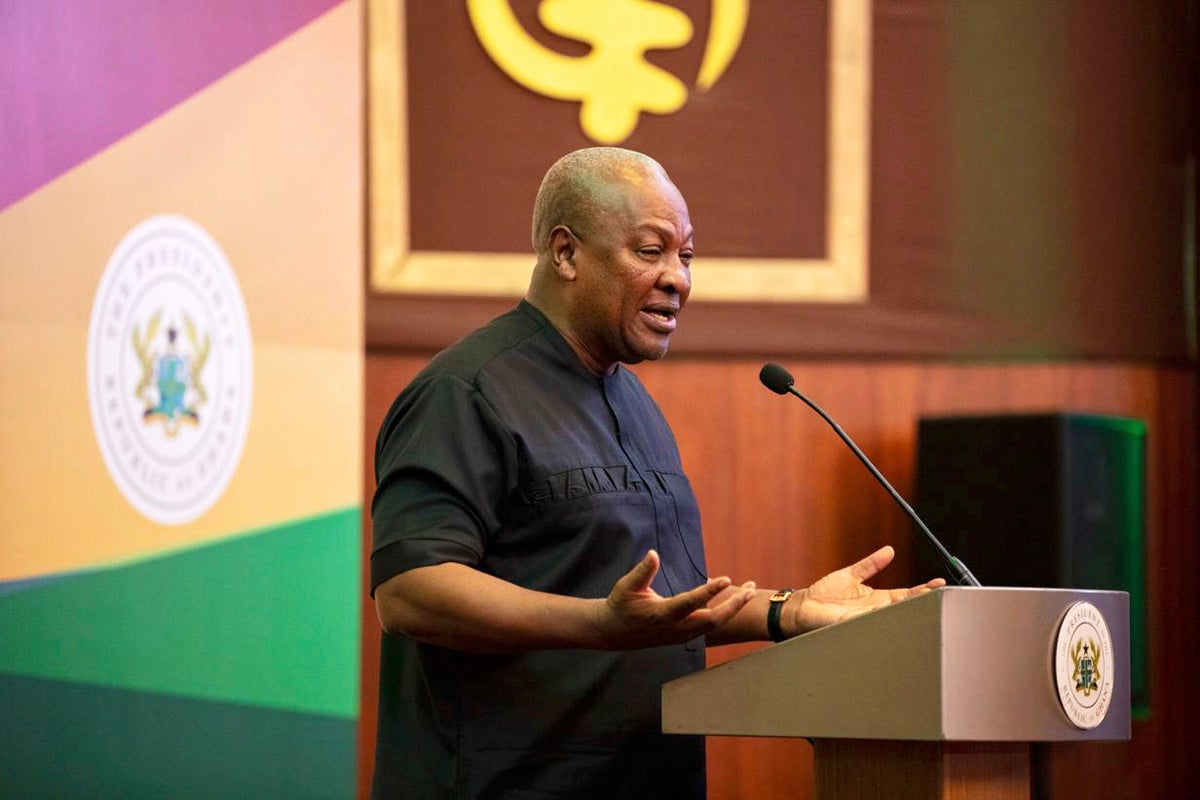
The group of 14 African immigrants deported to Ghana by the U.S. have been returned to their home countries, Ghanaian authorities reiterated on Tuesday, pushing back on claims from lawyers for the deportees who say they are still held in the West African country.
Ghana’s Minister for Government Communications and Presidential Spokesperson Felix Kwakye Ofosu reiterated the claim in an interview with the Associated Press, stating that the Gambian individual had already flown home while the remaining 13, all Nigerians, were sent home on a bus.
Lawyers for four of the Nigerian immigrants contradicted the official’s claim, saying in court filings on Monday and in interviews with AP that the four deportees were still being held in a facility in Ghana.
The Ghanaian minister denied knowledge of such a facility. “None of them are staying in this country. Nobody is being held in any camp and nobody’s right has been abused,” Ofosu said of the deportees in a phone interview.
The AP could not independently verify the current location of the deportees. However, a lawyer for the Gambian individual, from a different law firm, confirmed their client was in Gambia.
Nigerian and Gambian government officials told AP they were neither notified about the deportations nor involved in the process.
US judge won’t intervene in the deportations
Meanwhile, A U.S. judge said that she was powerless to stop the return of four men in Ghana’s custody to countries where U.S. immigration judges determined they faced torture or persecution, declining to intervene in a victory for the Trump administration.
U.S. District Judge Tanya Chutkan said that the administration appeared to be circumventing the U.N. Convention Against Torture by sending the West Africans to Ghana, but that her “hands are tied.”
Chutkan wrote that she was “alarmed and dismayed by the circumstances under which these removals are being carried out, especially in light of the government’s cavalier acceptance of Plaintiffs’ ultimate transfer to countries where they face torture and persecution.”
The ruling Monday night in federal court in Washington clears the way for 14 West Africans to be sent to their home countries from Ghana, including the four covered by the ruling. They appear to be destined for Nigeria and Gambia, despite U.S. immigration judges finding they have reason to fear persecution or torture.
Chutkan said it was the latest example of the Trump administration evading prohibitions on deportations by sending people outside the country anyway and claiming that U.S. judges had no power to order them back.
The judge distinguished it from the case of Kilmar Abrego Garcia, who the administration wrongly sent to a prison in his native El Salvador. In the Africa case, unlike in Abrego Garcia, she wrote, the administration could legally send them to Ghana.
Lee Gelernt of the American Civil Liberties Union, which joined the lawsuit, said in a statement: “We are obviously disappointed by the ruling but there’s no reason why the administration should require a court to tell them to obey the laws prohibiting the transfer of individuals to countries where it’s likely they will be tortured and persecuted.”
The U.S. Department of Homeland Security didn’t immediately respond to a request for comment.
The administration, faced with decisions by immigration judges that people can’t be sent back to their home countries, has increasingly been trying to send them to third countries with which the administration has created agreements to take deportees.
Ghana has joined Eswatini, Rwanda and South Sudan as African countries that have received migrants from third countries who were deported from the U.S.
The lawsuit filed on behalf of some of the migrants said they were held in “straitjackets” for 16 hours on a flight to Ghana and detained for days in “squalid conditions” after they arrived there. It said Ghana was doing the Trump administration’s “dirty work.”
Ghanaian Foreign Minister Samuel Okudzeto Ablakwa pushed back on criticism that the decision was an endorsement of U.S. President Donald Trump’s immigration policies. Ablakwa said Monday that Ghana didn’t receive any financial compensation from the U.S. over the deportation.
“We just could not continue to take the suffering of our fellow West Africans,” the minister said. “For now, the strict understanding that we have with the Americans is that we are only going to take West Africans.”
Nigeria’s government said that it wasn’t briefed about its nationals being sent to Ghana and that previously it had received Nigerians deported directly from the U.S.
“We have not rejected Nigerians deported to Nigeria. What we have only rejected is deportation of other nationals into Nigeria,” said Kimebi Imomotimi Ebienfa, a spokesperson for Nigeria’s Ministry of Foreign Affairs.
——
Riccardi reported from Colorado and Asadu from Dakar, Senegal. Associated Press writer Abdoulie John in Banjul, Gambia, contributed.
